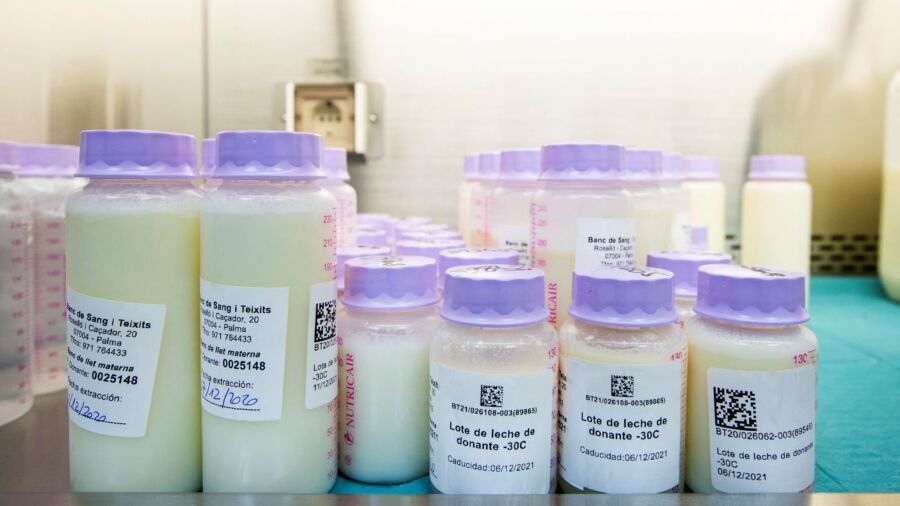More than 20 types of unregulated toxic flame retardants have been discovered in human breast milk in the United States for the first time, according to the findings of a new study.
The peer-reviewed research was authored by Toxic-Free Future, a non-profit organization conducting environmental health research, and is published in Environmental Pollution.
Researchers from Emory University, the University of Washington, and Seattle Children’s Research Institute analyzed milk samples collected from 50 mothers from across the United States to check for Brominated flame retardants (BFRs), a class of man-made chemicals that belong to a large group of organohalogen chemicals.
Brominated flame retardants are highly persistent and toxic and are typically used in a wide variety of products including plastics, textiles, electrical appliances, and even as thermal insulation in buildings as they reduce the flammability of a product.
However, they have been linked to cancer, harm to brain development, and hormone disruption.
For their study, researchers looked at the 50 samples of breast milk for 37 polybrominated diphenyl ethers (PBDEs), 18 bromophenols, and 11 other brominated flame retardants.
They discovered 25 kinds of toxic flame retardants in the human breast milk samples, including 9 PBDEs, 8 bromophenols, and 8 other BFRs.
Study Findings Are ‘Concerning’
That is despite PBDEs having been largely phased out in the United States more than 10 years ago through voluntary and regulatory actions due to health concerns.
Studies indicate that infants and toddlers have higher exposure to PBDEs, mainly through eating contaminated household dust and food, than older children or adults.
According to the Centers for Disease Control and Prevention (CDC), PBDEs dissolve readily in fat, meaning they can accumulate in breast milk and potentially be transferred to babies. The chemicals are thought to have an effect on neurodevelopment in children, including impaired cognitive development and motor skills, increased impulsivity, and decreased attention.
Because little is known about the toxicity of bromophenols, which were used to replace PDBEs, they are largely unregulated, although some studies have linked them to brain development disorders, The Guardian reports.
“It’s concerning to find flame retardants in breast milk that can disrupt hormones and affect children’s brain development,” said Dr. Amina Salamova, study co-author and assistant professor at Emory University’s Rollins School of Public Health. “This study is the first one to find harmful flame retardants called bromophenols in breast milk in the U.S. They’ve already been found to affect key thyroid hormones during fetal development, and now we know that infants are exposed through breast milk.”
‘Breast Milk Is Still Best’
According to researchers, bromophenols were found in 88 percent of the breast milk samples.
The study authors did note, however, that concentrations of PBDEs in milk appear to have declined since they were last measured 10 years ago by about 70 percent.
While multiple states and companies have banned brominated flame retardants in electronics, Toxic-Free Future is now calling on more companies to prevent unnecessary toxic flame retardants from being used in such products.
“Retailers have the power to drive these unnecessary toxic chemicals out of products,” said Mike Schade, director of Mind the Store, a program of Toxic-Free Future. “Best Buy has already shown leadership by restricting these chemicals in their own brand televisions. But more action is needed to prevent these plastic chemicals from contaminating breast milk and impacting babies. That’s why today we are launching a new national petition calling on Best Buy to take the next steps and eliminate these dangerous chemicals from other products it sells and ensure the substitutes are truly safe.”
Despite the findings, researchers still stressed that breast milk provides significant benefits to newborn and child health.
“Breast milk is still best for newborns,” explained Dr. Sheela Sathyanarayana, study co-author and professor of pediatrics at the University of Washington and Seattle Children’s Research Institute.
From The Epoch Times


